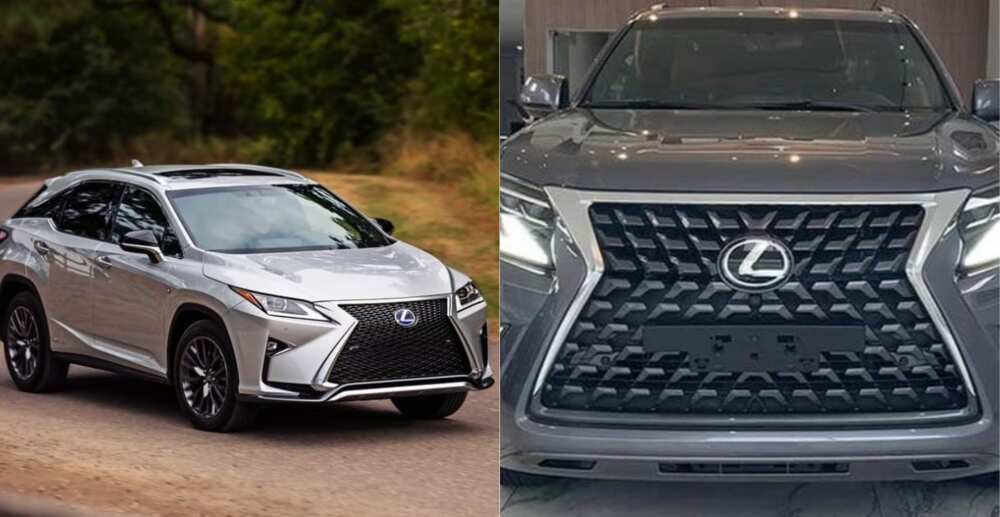FRSC Warns Against Use of Lexus NX260, NX3650h, NX400h+ Over ‘Faulty Programming’
- The FRSC has advised Nigerians against using the popular Lexus NX260, Lexus NX3650h and Lexus NX400h+
- According to the federal agency, the withdrawal was specifically premised on the fact that the vehicles would pose safety hazard to their users thereby leading to crashes
- The vehicles which were manufactured between March 31, 2021 and April 26, 2022 have been recalled because of the faulty programming of the Lane Keeping Assist (LKA) System
Nigerians have been warned against some modes of the widely used Lexus vehicles. Specifically, the Federal Road Safety Corps (FRSC) Nigerians must stop using some Toyota Lexus vehicles over “faulty programming”.
The agency said this in a statement by Bisi Kazeem FRSC’s public education officer.

Source: UGC
PAY ATTENTION: Сheck out news that is picked exactly for YOU ➡️ find the “Recommended for you” block on the home page and enjoy!
The FRSC is issuing the warning following Toyota’s recall of 14,799 “defective” Lexus vehicles.
“The Federal Road Safety Corps wishes to draw the attention of the motoring public, particularly those who are presently using Lexus NX260, Lexus NX3650h and Lexus NX400h+ manufactured between 31 March 2021 to 26 April 2022, to a faulty programming of the Lane Keeping Assist (LKA) System, which has prompted the Company to recall the categories of the listed vehicles."
The agency also said some Lexus NX260 vehicles with “defective” electric parking brake (EPB) system have been recalled.
“According to the report contained in a memo forwarded by the Office of the Secretary to the Government of the Federation, the company is also recalling 6,491 Lexus NX260 with defective Electric Parking Brake (EPB) system which was manufactured between 19 April 2021 and 15 July 2022,” FRSC said.
“The withdrawal is specifically premised on the fact that the vehicles will pose safety hazards to their users thereby leading to crashes.
“The Acting Corps Marshal, Dauda Ali Biu, is by this notice, admonishing the general public, particularly dealers and drivers of these categories of vehicles, to desist from selling or using the identified vehicles on Nigerian roads to avoid any mishap.”
Amazing photos as Buhari orders Innoson vehicles worth N660m for FRSC
Meanwhile, Legit.ng had reported that the Buhari'-led administration approved the procurement of a new set of Innoson vehicles worth N600 million for the Federal Road Safety Corps (FRSC) across Nigeria.
This was disclosed on Wednesday, October 26, by the minister of information and culture, Alhaji Lai Mohammed, during a press briefing in Abuja
Mohammed stated that the approval was issued on Wednesday during a Federal Executive Council (FEC) meeting presided over by Vice President Yemi Osinbajo. The minister noted that the fleet includes 20 pick-up vehicles and one City Bus, The Sun reports. According to him, the move is an effort of the federal government to encourage local industries to thrive in the country.

Read also
Anti-graft group to assist FG in fight against corruption, appoints Uwajeh chair of advisory council
Nigerian govt reaches agreement with two countries to help produce made-in-Nigeria electric vehicles
The Nigerian government had inked an agreement with Israeli and Japanese businesses to begin assembling and producing electric vehicles in Nigeria.
The deal was signed on in Abuja by the National Agency for Science and Engineering Infrastructure (NASENI) in collaboration with Israeli, Japanese, and Nigerian enterprises.
The companies are Peramare Enterprise of Israel and SIXAI of Japan.
The Israeli Ambassador to Nigeria, Michael Freeman, stated that the collaboration will aid in addressing the numerous difficulties confronting Nigeria's transportation and environmental sectors.
Source: Legit.ng


